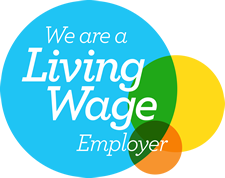
News
Helping not-for-profit organisations develop and sustain
the highest levels of employee and volunteer engagement

News

“When the culture is strong, you can trust everyone to do the right thing.” [Brian Chesky]. “Culture eats strategy for breakfast.” [Peter Drucker]. “Culture is about making people feel good about how they contribute to the whole.” [Tracy Streckenbach]
Everyone’s talking about culture and rightly so. A search for ‘workplace culture quotes’ brings up a long list of contributions from the great and the good. It can be defined as “the shared values, belief systems, attitudes and assumptions that people in a workplace share”.
It’s both positive, and timely, to see the theme of ‘success through an inclusive and supportive culture’ as the focus of Agenda Consulting’s Strategic People Conference.
At Atkinson HR Consulting, we work with charities across the UK and ‘how to build a great culture’ is consistently one of the top challenges (and opportunities) faced by our clients. Workplace culture remains at the top of the list for the Voluntary Sector.
Culture is complex and deep-rooted by its very definition. There is no quick fix for developing a strong, inclusive culture, but here are some of the key things we consistently find can make a big impact:
Articulate how you want it to change. Take time to listen to the language that people use to describe the organisation. What do they think is great about working there? Are there things that could be improved? What are the recurring themes from employee engagement surveys and exit interviews?
There will be features of the culture that are rooted in the organisation’s history and context; that come out in the stories that are told. It’s important to really get under the skin of the culture and what makes it the way it is.
Try writing down the words that describe the culture and the words that you’d like to use to describe it in the future. Be clear about which are the parts you want to keep, and which are the parts you’d like to change.
We often test this analysis with staff and other stakeholders to check if it reflects the organisation that they know and understand. You can then use this as the basis for any future culture change and to test the progress that’s been made.
Recruiting talent with a strong match to your values and desired culture is the next important step in building the right workplace environment. Once you’re clear about the culture and behaviours you need, recruit relentlessly against those expectations.
Be explicit in your recruitment pack about the values and behaviours you’re looking for and ensure your selection methods allow you to test these robustly.
If we genuinely believe that it is our people that will determine whether or not we are successful, then there should be few decisions more important than who we choose to invite to work in our organisations.
The first few weeks in a new employee’s role is a vital time to set them up to succeed in the future with you and help you create an inclusive and high-performing culture.
Not only does a great induction get new employees up to speed and productive as quickly as possible, it also gives an opportunity to build a strong understanding of ‘how we do things round here’, the behaviours that make the organisation successful and the values that underpin its mission.
Inevitably, leadership is another crucial part of the puzzle in creating a strong culture. Leaders need to be clear about the culture they are striving to create, but they should also be mindful and aware of the impact of their behaviours on that journey.
Leaders will play a crucial role in role-modelling the type of inclusive behaviours that they expect to see permeate through the organisation.
Doris Kearns Goodwin said that “good leadership requires you to surround yourself with people of diverse perspectives who can disagree with you without fear of retaliation”.
Building an environment where colleagues can give constructive and timely feedback is likely to be important in staying on course and attuned to how things are going.
Be determined in creating opportunities for learning and development. Any process of culture change is certain to require people to adapt and learn new ways of working. L&D is too often seen as a ‘nice to do’ when it should be a basic expectation that all colleagues take responsibility for learning, growing and striving to be better.
Investing in different forms of learning (management development, coaching, action learning etc) will often reap rewards in paving the way for adopting and embracing a new culture within your organisation.
There will almost inevitably be some bumps, wrong-turns and lots of learning in any culture change journey. However, if you have clarity around your destination, effective leadership and a clear framework for getting there it will be worth the energy and hard work that it takes.
Atkinson HR Consulting are a CIPD award-winning consultancy that work with values-based organisations to develop excellent people management, performance and leadership. The Atkinson HR Consulting team are exhibiting at Agenda Consulting’s Strategic People conference on Thursday 12th March in London.
If you’d like to explore how they could support you with understanding and developing your culture, sign up now to meet them at Strategic People 2020.
5 Linford Forum
Rockingham Drive
Milton Keynes
MK14 6LY
UK
Company No: 4509427
